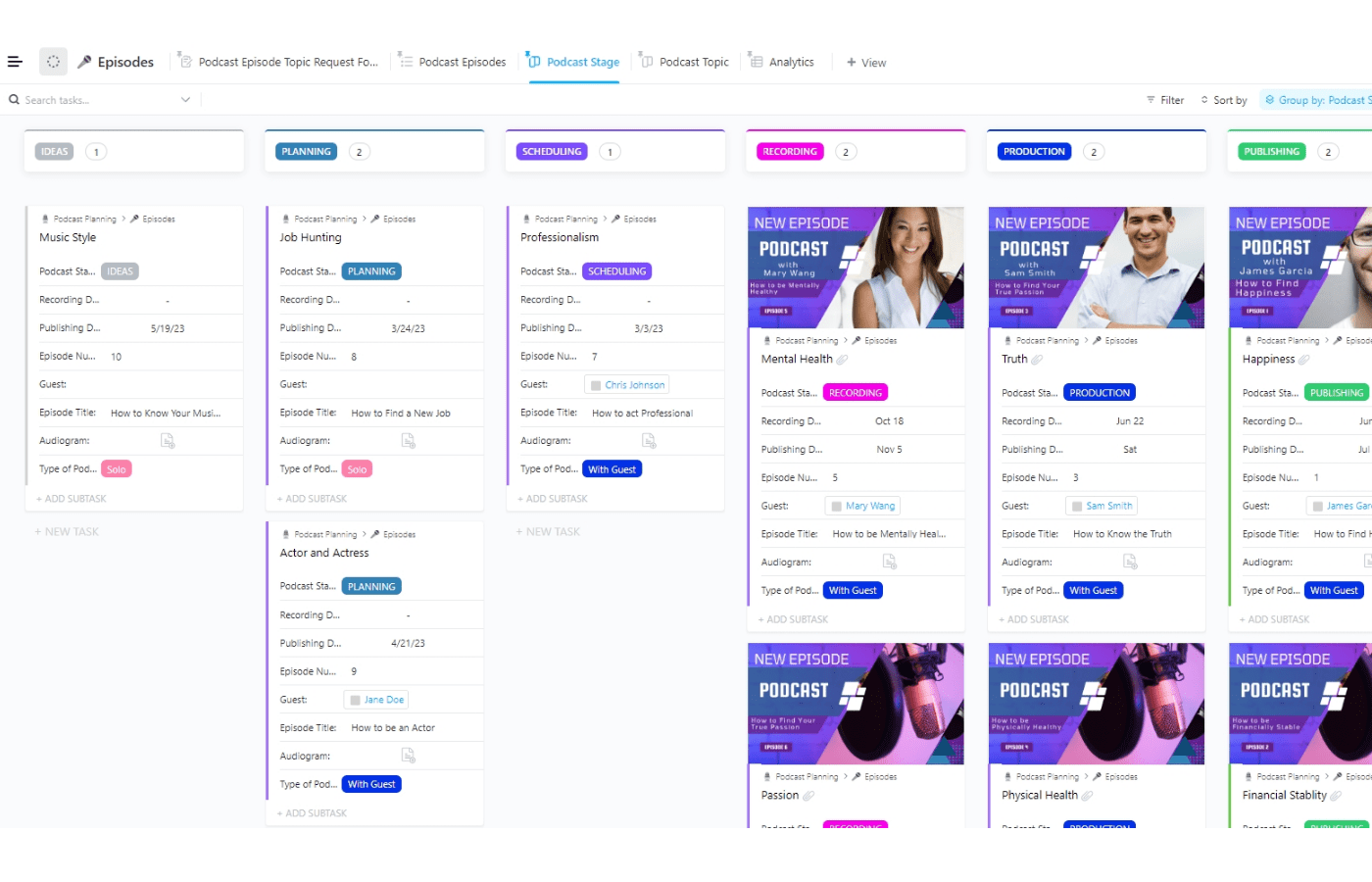Consumer expectations are continuously rising regarding modern conveniences. People are expecting easy-to-use apps and seamless interactions for their online shopping, home deliveries, and digital payments.
Companies are finding innovative ways to deliver a great experience to customers, thereby speeding up the digital transformation of their business. Online database software is a key component in equipping organizations to survive and thrive in a digital world.
Table of Contents
What Is Online Database Software?
Cloud computing technology allows businesses to store and access data using an internet connection. It also allows them to quickly build applications and other resources. Cloud-based database software provides companies an online database that not only gives more cost-effective storage, but also better flexibility compared to databases stored in the company’s own on-premises servers.
Database software also offers increased collaboration with the help of no-code/low-code tools. Employees of all skill levels have access to intuitive interfaces that allow them to create custom applications with drag-and-drop builders and wizards. Cloud-based databases also enable flexible deployment of solutions. Providers offer other services like
backup, redundancy, and automation that help businesses be more available, reliable, and resilient.
Read also: Best Online Database Application Builders
Back to top
Best Online Database Software
Database software enables companies of all sizes to provide better digital experiences to their customers. Small-to-midsize businesses are more agile, while larger enterprises can make better, data-driven decisions in less time. Here is a list of the top cloud-based database software based on multiple reviews, features, and company rankings.
Azure SQL Database

Azure SQL Database from Microsoft is a managed database service. It is an SQL database running on the Azure platform, where clients pay for access to the database on a monthly or annual basis, depending on configuration. Businesses get access to a relational database that is scalable and includes built-in automation and AI features.
Azure SQL Database is fully managed and always has the latest updated version of SQL, minimizing database administration tasks. The flexible cloud-native architecture allows storage to grow as needed, with regular backups and quick restoration. Other features include compatibility with development platforms and popular programming languages, as well as simplified .NET app integration.
Amazon Aurora

Amazon Aurora is cloud-based database software compatible with MySQL and PostgreSQL databases running on the AWS platform. It is relational database software that offers the performance of enterprise solutions with the simplicity of open-source software. It also comes with high security, availability, and reliability features. The database software auto-scales as needed and replicates six copies of data across three availability zones.
Amazon Aurora is fully managed database software through the Relational Database Service (RDS). The service automates many admin tasks, such as hardware provisioning, database setup, patching, and backups. Typical use cases are for enterprise applications, SaaS applications, and web and mobile gaming.
MongoDB Cloud

MongoDB Cloud provides a way to build data-driven applications using its NoSQL, data document model database. Its query language is simple to learn and use. It includes functionality such as automatic failover, horizontal scaling, and the ability to assign data to a location, which can be costly if implemented within a relational-type database.
MongoDB Cloud includes Atlas, a fully managed database. It is an advanced cloud-based database service with possible deployment across AWS, Azure, and Google Cloud platforms. Features include built-in automation and resource workload optimization, full-text search capabilities, serverless and scalable data lake, lightweight Realm database embedded on the client, integrations, application services, and free native GUI development.
Zoho Creator
 Zoho
Zoho Creator is a low-code platform with a cloud-based database back end that allows clients to build custom applications for their business. It provides a visual app builder with drag-and-drop elements that simplify applications development. Automated workflows and ready-to-use data connectors are also included to integrate and extend the functionality of database apps.
Zoho Creator offers a free plan for a singe application and paid plans for multiple users and apps. The database in the paid plans provides at least 50k records per user, in addition to other builder features, data collection and administration, notifications, automation, customization, and ready-to-use integrations. It collects over 30 types of data, displays 40 types of charts, and has web- and mobile-ready dashboards that can converge data from multiple sources.
Claris Filemaker

Claris Filemaker is an application development platform that has built-in templates, drag-and-drop design, and an intuitive graphical interface. Some of the database apps to create are charts, calendars, maps, signature capture, CRM, project management, content library, and asset manager.
All apps developed in Filemaker will work on web, mobile, and desktops, both in the cloud and on-premise. The database software and app builder offers a complete toolset to create, share, and access custom apps, as well as integrate them with other systems. Paid plans are on a per-user, per-month basis paid annually for a minimum of five users. It can host at least three apps and 2GB of data storage per user, per year.
Airtable
 Airtable
Airtable is a custom app builder and cloud-based database software. It provides the features of a relational data model with easy-to-use tools to add a variety of data field types like file attachments, text, checklists, links, and barcodes. The customization features enable businesses to quickly build solutions for their teams, such as content calendars, product roadmaps, and event planners.
Airtable offers a free plan with unlimited databases to build an application with a 1200 records per base limit. Premium plans include higher database record limits to support unlimited applications. In addition to the database software, it also offers multiple work views, app integrations, automation, table synchronization, and real-time collaboration.
Caspio
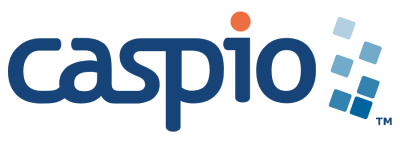 Caspio
Caspio lets clients build online applications with its no-code/low-code platform. It has a visual app builder, integrated database software, and several models. Companies can build custom cloud applications, manage data, and automate processes with clicking instead of coding.
Caspio database software provides simultaneous access to multiple users. Individuals can access data and reports, depending on their permissions, using custom interfaces. Features include dynamic database scaling, 99.9% guaranteed uptime, fully relational database, enterprise-grade compliance, ready-made templates, data import/export, open standards, and integration through Zapier.
Knack
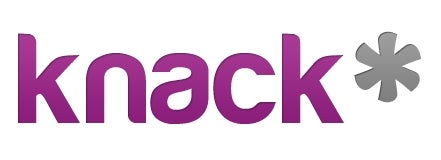
Knack is database software for quickly building business apps without coding. It provides easy-to-use features to transform data into an online database. Clients can structure data with data types, connect them by linking related records together, and extend functionality with options like formulas and computations.
Knack enables the creation of forms, search tools, maps, calendars, reports, and login pages. It comes with functionality for secure access, automation, data management, reports, and dashboards. The software can also integrate payments with custom data and workflows for applications like customer invoices, event tickets, purchase orders, and online donations.
Learn more in our
Knack review.
Kohezion

Kohezion is a database software builder that enables organizations to build custom applications. It includes a drag-and-drop builder that gives the ability to create online solutions, such as a workspace or a dashboard, as needed. A low-code platform eliminates the need to rely on outside vendors while cutting down development time.
Kohezion allows clients to build database applications from scratch, by using a template, or by uploading or merging data from a spreadsheet. It is a scalable solution for a wide range of use cases such as sales, operations, support, marketing, HR, finance, IT, and administration. The company also offers a turnkey solution for customers who need help building their database software.
Node14
 Node14
Node14 is custom cloud software that simplifies technology adoption. The cloud-based database engine requires no installation or maintenance from the client. It includes unlimited sections or apps, fields, rows or records, file storage, reports and graphs, and bandwidth/usage.
Node14 provides a pre-built technology structure. It has dashboards, a report builder, pipeline or Kanban views, data backups, real-time data updates, security features, and support available by request. Further, the company offers free consultation and a team of experts ready to offer database builder services for each customer.
Back to top
Types of Online Database Software
There are several types of database software depending on the classification. Classifications can be according to the delivery model and according to the data model.
Hosted or Self-Managed
A hosted or self-managed database is a type of database delivery model similar to a database installed on-premise, but instead the database runs remotely on the cloud. The vendor offers the hardware, servers, storage, and other system features for the customer to connect. The customer company then uses its own virtual machine software, and installs their operating system and database engine. The customer is still responsible for most of the database administration activities.
Database-as-a-Service (DBaaS) or Fully Managed
In this model, the cloud platform provider offers not only hardware, but software, as well as other database management and maintenance tasks such as provisioning, backup, scaling, and monitoring. The customer has some options to select the level of expected performance or the ability to scale as needs increase or decrease. Fully managed databases also handle security, but providers leave businesses some of the decisions — such as creating accounts and access limitations to tables and records.
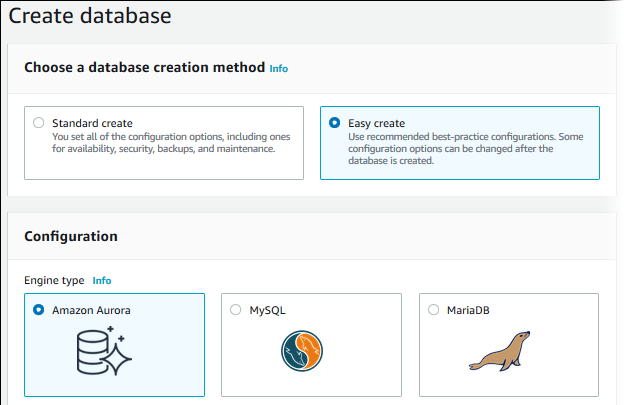
Data API or Serverless
Recent advances in internet technology and software design now allow web browsers to aggregate complex data from multiple databases across multiple cloud providers. Applications use APIs to service requests for customer data, so customers pay only for the API calls they use.
Relational Database
Relational databases, like traditional SQL servers, are databases where users interact with the database content using a standard query language (SQL). Relational databases are ideal for transactions, adhering to atomic, consistency, isolation, and durability (ACID) properties, such as those needed in banking transactions.

Non-Relational Database
Non-relational databases like NoSQL and other cloud native databases are ideal for handling unstructured data. These types of databases are for special application use cases, such as for JSON documents with a flexible database schema, searching document locations that contain particular words, quick storage and retrieval of values, storing relationships between objects, and recording events with timestamps.
End-User Database
An end-user database is a database that can either be relational or non-relational, but remains transparent. No-code/low-code platforms use this type of database so they can store, edit, search, group, sort, filter, and manipulate customer information without the need to use a programming language. This model provides easy-to-use app builders for quickly building views, reports, relationships, and pivot tables.
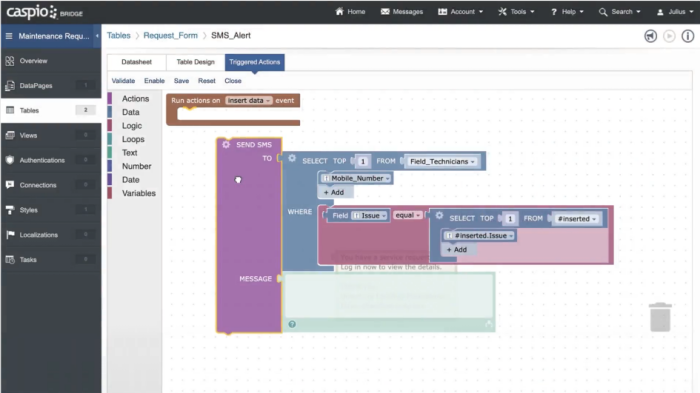 Back to top
Back to top
What are the Features of an Online Database Software?
Today’s online database providers offer a variety of database types, software, and added services. But some common features remain important for companies in their search for the right online database.
Flexible Deployment
Fully managed database software can remove some of the burden of administration and maintenance tasks. And with a trend moving toward serverless architecture, companies should check if the provider can also offer this additional capability with seamless transition.
Scalability
Growing companies and enterprises can take advantage of autoscaling capabilities. Storage has always been a challenge with managing databases, so added scalability can help avoid problems when data increases.

Data Protection
Database providers offer data protection by default. Companies need to choose which is most suitable to their requirements with a balance of cost. Data protection includes regular backup, quick restoration, replication, redundancy, and software patching and updates.
Ease of Migration
If companies are at the start of their digital transformation, they may need to
migrate data stored in spreadsheets and other static forms of document storage. Database software should have the tools to help in migrating data to the cloud.
Performance
Companies need to check the performance of a database as the volume of transactions or the amount of usage increase. This includes having a cost-effective way of provisioning for capacity and choosing the right type of storage that can handle different workloads.

Admin Tools
GUI tools are easier to use than a command line interface. The smarter and more interactive they are for administration, the better control admins have over the database with regards to roles, access rights, and security restrictions.
No-code/Low-code Tools
Database software that also provides features to help build custom applications can help save on cost. Customers will not have to spend money on additional software or hire development firms, but instead build the applications themselves.
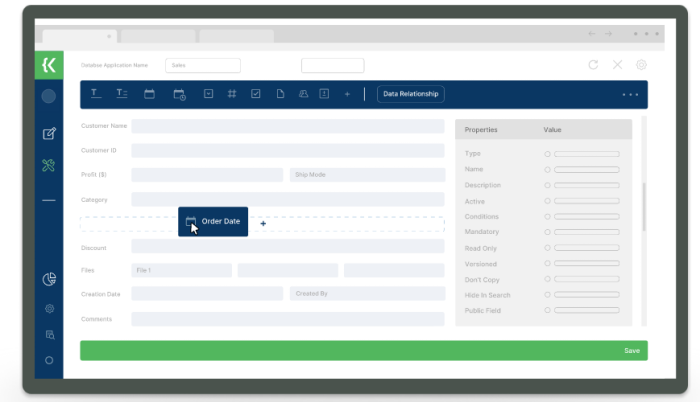 Back to top
Back to top
Features for Small Businesses
Small businesses gain new opportunities with cloud computing and online database software that supports low expenses for hardware and IT manpower.
- Ease of migration: Small businesses can quickly digitize their data, content, and processes with a cloud-based database that helps move their data from spreadsheets to the cloud.
- No-code/low-code: Once company data is in the cloud, businesses need to build applications quickly to maximize their data and processes for business sales, operations, and management.
- Performance: Having data in the cloud and custom applications will mean nothing if companies cannot access the contents. The database should be able to provide uninterrupted access to data.
Back to top
Features for Midsize Businesses
A midsize business experiencing growth may have fluctuating demands, so it must have the right database software to manage its unique challenges.
- Scalability: Midsize companies may need to instantly scale up or down their database capacities to be more agile and cope with dynamic market behavior.
- Data protection: While engaging with existing and potential customers and business partners, companies need to make sure that their data remains safe and secure. And if a business disruption occurs, the cloud database software should be available ASAP to minimize any downtime and loss.
- No-code/low-code: Online database platforms with the functionality to build applications can contribute significant savings to a growing company. Companies can then allocate these resource savings to other business needs.
Back to top
Features for Enterprise Businesses
Enterprise businesses need to maximize the potential in their data, and the right cloud-based database can give them the insight to make the right decisions.
- Flexible deployment: Enterprises may be present in several industries, some of which may be heavily regulated for compliance. Flexibility in deploying their cloud database software allows large organizations to seamlessly connect all their enterprise data residing on different infrastructure and configurations.
- Scalability and performance: Bigger databases can fluctuate with greater intensity, so automatic scaling is necessary to meet ever-changing requirements. Companies should also have the right hardware provisions and storage to make sure applications can access and store data in transit to and from the database with optimum performance.
- Data protection: Bigger companies need better protection of their data. Aside from natural disruptions, security breaches from cybercriminals can cost enterprises significant financial and reputation damages.
Read next: Project Management Techniques Used by Hackers Azure SQL Database from Microsoft is a managed database service. It is an SQL database running on the Azure platform, where clients pay for access to the database on a monthly or annual basis, depending on configuration. Businesses get access to a relational database that is scalable and includes built-in automation and AI features.
Azure SQL Database is fully managed and always has the latest updated version of SQL, minimizing database administration tasks. The flexible cloud-native architecture allows storage to grow as needed, with regular backups and quick restoration. Other features include compatibility with development platforms and popular programming languages, as well as simplified .NET app integration.
Azure SQL Database from Microsoft is a managed database service. It is an SQL database running on the Azure platform, where clients pay for access to the database on a monthly or annual basis, depending on configuration. Businesses get access to a relational database that is scalable and includes built-in automation and AI features.
Azure SQL Database is fully managed and always has the latest updated version of SQL, minimizing database administration tasks. The flexible cloud-native architecture allows storage to grow as needed, with regular backups and quick restoration. Other features include compatibility with development platforms and popular programming languages, as well as simplified .NET app integration.
 Amazon Aurora is cloud-based database software compatible with MySQL and PostgreSQL databases running on the AWS platform. It is relational database software that offers the performance of enterprise solutions with the simplicity of open-source software. It also comes with high security, availability, and reliability features. The database software auto-scales as needed and replicates six copies of data across three availability zones.
Amazon Aurora is fully managed database software through the Relational Database Service (RDS). The service automates many admin tasks, such as hardware provisioning, database setup, patching, and backups. Typical use cases are for enterprise applications, SaaS applications, and web and mobile gaming.
Amazon Aurora is cloud-based database software compatible with MySQL and PostgreSQL databases running on the AWS platform. It is relational database software that offers the performance of enterprise solutions with the simplicity of open-source software. It also comes with high security, availability, and reliability features. The database software auto-scales as needed and replicates six copies of data across three availability zones.
Amazon Aurora is fully managed database software through the Relational Database Service (RDS). The service automates many admin tasks, such as hardware provisioning, database setup, patching, and backups. Typical use cases are for enterprise applications, SaaS applications, and web and mobile gaming.
 MongoDB Cloud provides a way to build data-driven applications using its NoSQL, data document model database. Its query language is simple to learn and use. It includes functionality such as automatic failover, horizontal scaling, and the ability to assign data to a location, which can be costly if implemented within a relational-type database.
MongoDB Cloud includes Atlas, a fully managed database. It is an advanced cloud-based database service with possible deployment across AWS, Azure, and Google Cloud platforms. Features include built-in automation and resource workload optimization, full-text search capabilities, serverless and scalable data lake, lightweight Realm database embedded on the client, integrations, application services, and free native GUI development.
MongoDB Cloud provides a way to build data-driven applications using its NoSQL, data document model database. Its query language is simple to learn and use. It includes functionality such as automatic failover, horizontal scaling, and the ability to assign data to a location, which can be costly if implemented within a relational-type database.
MongoDB Cloud includes Atlas, a fully managed database. It is an advanced cloud-based database service with possible deployment across AWS, Azure, and Google Cloud platforms. Features include built-in automation and resource workload optimization, full-text search capabilities, serverless and scalable data lake, lightweight Realm database embedded on the client, integrations, application services, and free native GUI development.
 Claris Filemaker is an application development platform that has built-in templates, drag-and-drop design, and an intuitive graphical interface. Some of the database apps to create are charts, calendars, maps, signature capture, CRM, project management, content library, and asset manager.
All apps developed in Filemaker will work on web, mobile, and desktops, both in the cloud and on-premise. The database software and app builder offers a complete toolset to create, share, and access custom apps, as well as integrate them with other systems. Paid plans are on a per-user, per-month basis paid annually for a minimum of five users. It can host at least three apps and 2GB of data storage per user, per year.
Claris Filemaker is an application development platform that has built-in templates, drag-and-drop design, and an intuitive graphical interface. Some of the database apps to create are charts, calendars, maps, signature capture, CRM, project management, content library, and asset manager.
All apps developed in Filemaker will work on web, mobile, and desktops, both in the cloud and on-premise. The database software and app builder offers a complete toolset to create, share, and access custom apps, as well as integrate them with other systems. Paid plans are on a per-user, per-month basis paid annually for a minimum of five users. It can host at least three apps and 2GB of data storage per user, per year.
 Caspio lets clients build online applications with its no-code/low-code platform. It has a visual app builder, integrated database software, and several models. Companies can build custom cloud applications, manage data, and automate processes with clicking instead of coding.
Caspio database software provides simultaneous access to multiple users. Individuals can access data and reports, depending on their permissions, using custom interfaces. Features include dynamic database scaling, 99.9% guaranteed uptime, fully relational database, enterprise-grade compliance, ready-made templates, data import/export, open standards, and integration through Zapier.
Caspio lets clients build online applications with its no-code/low-code platform. It has a visual app builder, integrated database software, and several models. Companies can build custom cloud applications, manage data, and automate processes with clicking instead of coding.
Caspio database software provides simultaneous access to multiple users. Individuals can access data and reports, depending on their permissions, using custom interfaces. Features include dynamic database scaling, 99.9% guaranteed uptime, fully relational database, enterprise-grade compliance, ready-made templates, data import/export, open standards, and integration through Zapier.
 Knack is database software for quickly building business apps without coding. It provides easy-to-use features to transform data into an online database. Clients can structure data with data types, connect them by linking related records together, and extend functionality with options like formulas and computations.
Knack enables the creation of forms, search tools, maps, calendars, reports, and login pages. It comes with functionality for secure access, automation, data management, reports, and dashboards. The software can also integrate payments with custom data and workflows for applications like customer invoices, event tickets, purchase orders, and online donations.
Learn more in our Knack review.
Knack is database software for quickly building business apps without coding. It provides easy-to-use features to transform data into an online database. Clients can structure data with data types, connect them by linking related records together, and extend functionality with options like formulas and computations.
Knack enables the creation of forms, search tools, maps, calendars, reports, and login pages. It comes with functionality for secure access, automation, data management, reports, and dashboards. The software can also integrate payments with custom data and workflows for applications like customer invoices, event tickets, purchase orders, and online donations.
Learn more in our Knack review.
 Node14 is custom cloud software that simplifies technology adoption. The cloud-based database engine requires no installation or maintenance from the client. It includes unlimited sections or apps, fields, rows or records, file storage, reports and graphs, and bandwidth/usage.
Node14 provides a pre-built technology structure. It has dashboards, a report builder, pipeline or Kanban views, data backups, real-time data updates, security features, and support available by request. Further, the company offers free consultation and a team of experts ready to offer database builder services for each customer.
Back to top
Node14 is custom cloud software that simplifies technology adoption. The cloud-based database engine requires no installation or maintenance from the client. It includes unlimited sections or apps, fields, rows or records, file storage, reports and graphs, and bandwidth/usage.
Node14 provides a pre-built technology structure. It has dashboards, a report builder, pipeline or Kanban views, data backups, real-time data updates, security features, and support available by request. Further, the company offers free consultation and a team of experts ready to offer database builder services for each customer.
Back to top


 Back to top
Back to top


 Back to top
Back to top


